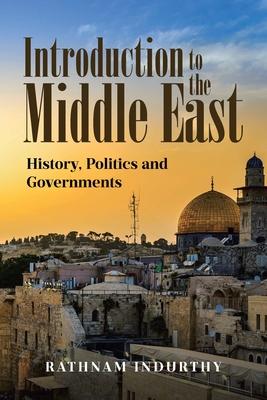The Middle East is the center of three great ancient civilizations--Egyptian, Babylonian, and Persian. It is also the seat of four monotheistic religions--Judaism, Zoroastrianism, Christianity, and Islam. Because of the strategic location between the West and the East, the Middle East, since the early nineteenth century, became the fulcrum of competition among and between great powers, including Czarist Russia, and it became intensified with the outbreak of the Cold War the end of the World War II between the two superpowers--the US and the Soviet Union--and with the creation of Israel in 1948 and the discovery of oil. And it remains as such even after the collapse of the Soviet Union in 1991. The region became an epicenter of the Arab-Israeli conflict, Islamic fundamentalism, Islamic terrorism, irredentism, and sectarian wars. The region remains politically unstable and unpredictable, given the fact it is run by autocratic regimes and dynastic monarchies except for Israel, a functioning democracy. So the purpose of this work is to introduce students and the general readers to this region's history--the founding of Islam, its spread and split, the Ottoman Empire and its fall, the Western colonization and its end, and the emergence of independent Arab states. The also work examines the domestic, regional, and international of nine countries--the frontline and the Persian Gulf states in the context of the Arab-Israeli conflict in terms of its impact and nonimpact over them, with the exception of Turkey. An understanding of the region hopefully should help us deal with the vicissitudes and the complexities, given our dependence on the region's oil and the sea shipping through the Suez Canal and the Persian Gulf.

Introduction to the Middle East: History, Politics and Governments
The Middle East is the center of three great ancient civilizations--Egyptian, Babylonian, and Persian. It is also the seat of four monotheistic religions--Judaism, Zoroastrianism, Christianity, and Islam. Because of the strategic location between the West and the East, the Middle East, since the early nineteenth century, became the fulcrum of competition among and between great powers, including Czarist Russia, and it became intensified with the outbreak of the Cold War the end of the World War II between the two superpowers--the US and the Soviet Union--and with the creation of Israel in 1948 and the discovery of oil. And it remains as such even after the collapse of the Soviet Union in 1991. The region became an epicenter of the Arab-Israeli conflict, Islamic fundamentalism, Islamic terrorism, irredentism, and sectarian wars. The region remains politically unstable and unpredictable, given the fact it is run by autocratic regimes and dynastic monarchies except for Israel, a functioning democracy. So the purpose of this work is to introduce students and the general readers to this region's history--the founding of Islam, its spread and split, the Ottoman Empire and its fall, the Western colonization and its end, and the emergence of independent Arab states. The also work examines the domestic, regional, and international of nine countries--the frontline and the Persian Gulf states in the context of the Arab-Israeli conflict in terms of its impact and nonimpact over them, with the exception of Turkey. An understanding of the region hopefully should help us deal with the vicissitudes and the complexities, given our dependence on the region's oil and the sea shipping through the Suez Canal and the Persian Gulf.